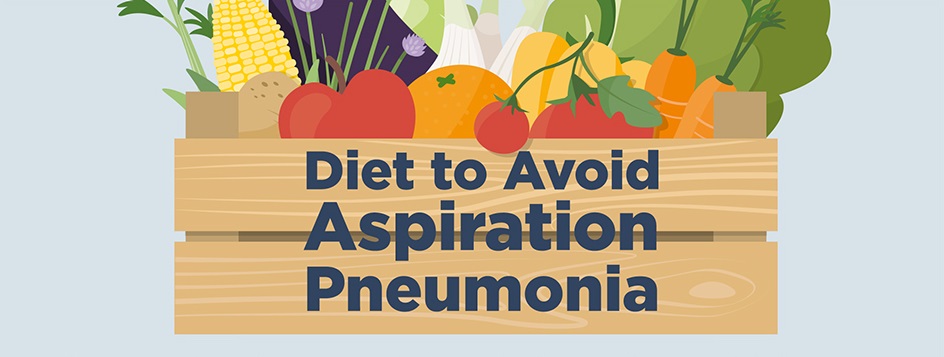
Pneumonia is tough to deal with for anybody therefore pneumonia in the elderly can be extremely difficult.The good thing is that proper diets can help seniors avoid infections like pneumonia.Read the text alternative of Diet Avoid Aspiration Pneumonia.Pneumonia is an infection in the lungs that is typically caused by bacteria.One way that this infection can develop is when food, drink, or even saliva are breathed into the lungs instead of swallowed into the stomach.
These substances can get stuck in the lungs along with any bacteria they carry, turning into aspiration.Food to EatGenerally, tender foods are easier to chew and swallow, helping reduce the chance that they get swallowed down the wrong pipe.Tender FoodsBananasRiceGround beef or turkeyPeeled fruitPotatoesFishFrench toastTIP: You can also cut other foods into small bites to change their consistency and make them easier to swallow.Smaller bites of food can help further reduce the risk of aspiration pneumonia.Some seniors may be able to swallow pureed foods or thickened liquids more easily than tender foods.These foods should be smooth and not have any lumps.Pureed FoodsSmoothieSoupPuddingYogurtRice cerealPureed fruits or vegetablesCottage cheeseTIP: You can puree many foods, including what you prepare for the whole family to eat.
Just put a portion of the food in a blender and mix until smooth.You may need to add liquid (water, stock, gravy, sauce, etc.) to get the right consistency.Food to AvoidTo help prevent aspiration pneumonia, you should avoid foods that can be difficult to chew and swallow.Whole fruitSeeds and nutsPastaRaw vegetablesCeleryScrambled, fried, or hard-boiled eggsCornMulti-grain breadBeans and peasCrackersEating TechniquesWhat a senior eats is as important as how senior eats.Maintaining proper eating techniques during each meal can help reduce the risk of aspiration pneumonia.Sit up straight when eating and drinkingDrink plenty of water with mealsTake small bites of foodEat slowlyReduce distractions during mealtimeMaintain good oral hygieneUse assistive utensils as neededAvoid talking while eatingSymptoms of AspirationWhile eating and for least 30 minutes after eating, sit upright and watch for aspiration symptoms such as:Coughing or wheezing during or after eatingExcess salivaFever 30 to 60 minutes after eatingA wet-sounding voice during or after eating or drinkingShortness of breath or fatigue while eatingCaring Senior Service offers a pneumonia-specific care program that helps caregivers identify and address the needs of seniors recovering from pneumonia.
For more resources on how to manage pneumonia recovery, contact Caring Senior Service.
Publisher: Caring Senior Service ( Read More )

